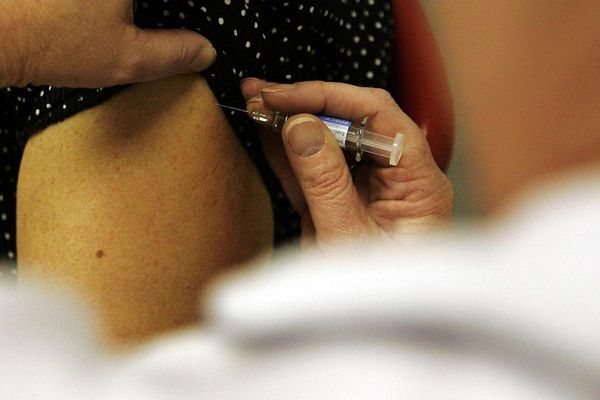Salford's Jewish community has been hit by an outbreak of dysentery.
The highly infectious disease has broken out in the Orthodox Jewish area of Broughton Park.
Public health experts are now working with Salford council to try and contain the spread.
The disease had already occurred amongst the Orthodox Jewish community in London.
In a statement Public Health North West's Greater Manchester Health Protection team said: "We are working with Salford council following notification of a cluster of cases of shigella sonnei infection in the Orthodox Jewish community in Salford."
Dr Matt Pegorie, from Public Health England, said: “Shigella is highly infectious and can spread rapidly in communities such as nurseries and schools, which is why people should stay away from work or school until they have been free of symptoms for 48 hours.
“Patients with Shigella should take great care with personal hygiene to reduce the risk of passing on infection to others. It is important that hands are washed thoroughly with soap and warm water after using the toilet, changing children’s nappies and before preparing or eating food."
About dysentery, or shigella
- Shigella are bacteria that cause gastroenteritis which can be unpleasant.
- Symptoms include diarrhoea (which can be bloody), fever and abdominal cramps, and can last about 5 to 7 days.
- Fever of 38C or 100.4F
- Most infections get better without antibiotics. Shigella infection can sometimes result in more severe disease.
Shigellosis is the major global cause of dysentery.
Shigella sonnei which has historically been more commonly isolated in developed countries, is undergoing an unprecedented expansion across industrializing regions in Asia, Latin America, and the Middle East.
As dysentery usually clears up on its own after three to seven days, treatment isn't usually needed.
However, it's important to drink plenty of fluids to avoid deydration.

Over-the-counter painkillers, such as paracetamol can help relieve pain and a fever. Avoid antidiarrhoeal medications, such as loperamide, because they can make things worse.
You should stay at home until at least 48 hours after the last episode of diarrhoea to reduce the risk of passing the infection on to others.
For more information, visit the NHS Choices website: https://www.nhs.uk/conditions/dysentery/
Follow us on Twitter and Facebook for the latest news. We are also on Instagram .
If you are on the go, the M.E.N. app helps bring you closer to the latest news where you live. Available on iPhone and Android , the app can be tailor made to bring you the latest on what matters to you.
Breaking news, the latest on your football club, the pick of the week’s events and the latest travel - you can tailor the app to suit you. Our push notifications help highlight the biggest stories to you first.
Download it on iPhone and Android here .






